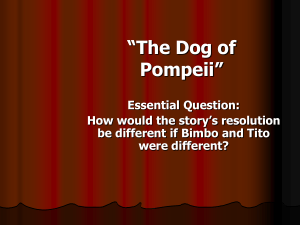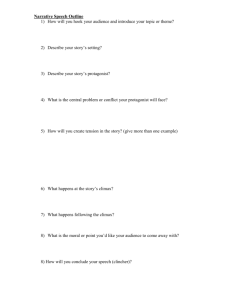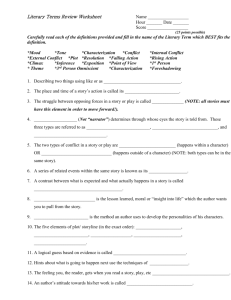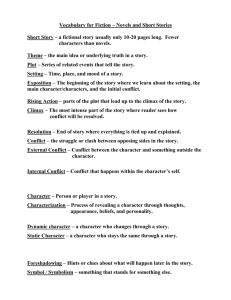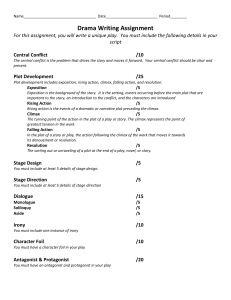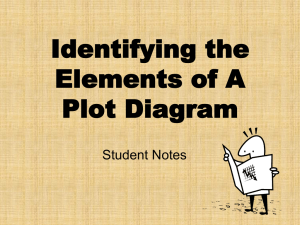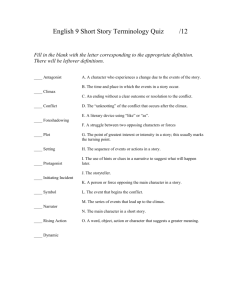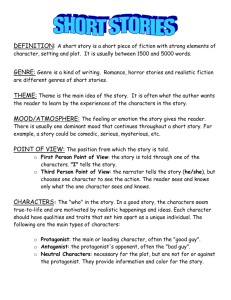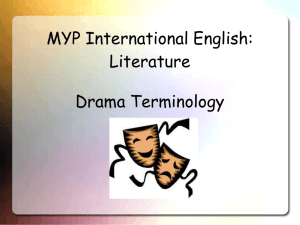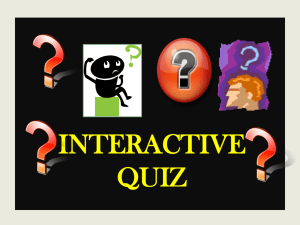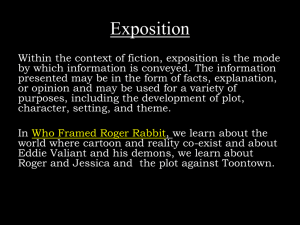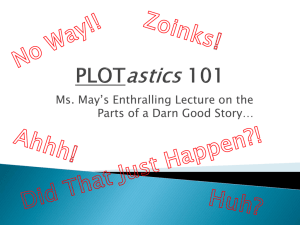Literary Terms Worksheet: Plot, Conflict, and More
advertisement
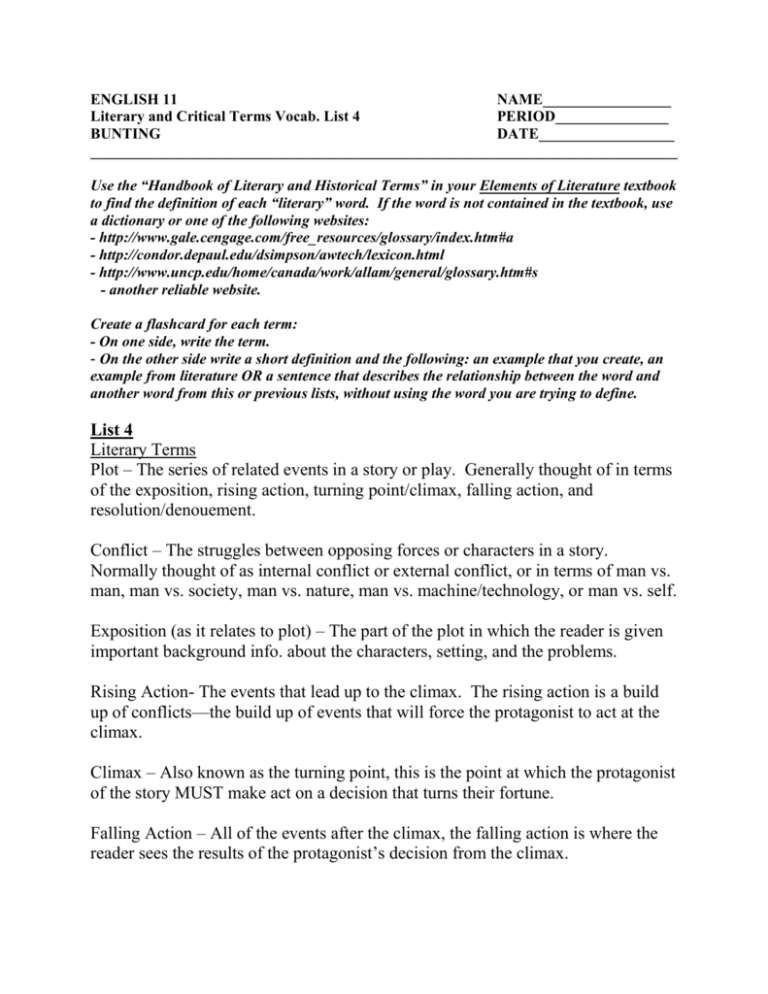
ENGLISH 11 NAME_________________ Literary and Critical Terms Vocab. List 4 PERIOD_______________ BUNTING DATE__________________ ______________________________________________________________________________ Use the “Handbook of Literary and Historical Terms” in your Elements of Literature textbook to find the definition of each “literary” word. If the word is not contained in the textbook, use a dictionary or one of the following websites: - http://www.gale.cengage.com/free_resources/glossary/index.htm#a - http://condor.depaul.edu/dsimpson/awtech/lexicon.html - http://www.uncp.edu/home/canada/work/allam/general/glossary.htm#s - another reliable website. Create a flashcard for each term: - On one side, write the term. - On the other side write a short definition and the following: an example that you create, an example from literature OR a sentence that describes the relationship between the word and another word from this or previous lists, without using the word you are trying to define. List 4 Literary Terms Plot – The series of related events in a story or play. Generally thought of in terms of the exposition, rising action, turning point/climax, falling action, and resolution/denouement. Conflict – The struggles between opposing forces or characters in a story. Normally thought of as internal conflict or external conflict, or in terms of man vs. man, man vs. society, man vs. nature, man vs. machine/technology, or man vs. self. Exposition (as it relates to plot) – The part of the plot in which the reader is given important background info. about the characters, setting, and the problems. Rising Action- The events that lead up to the climax. The rising action is a build up of conflicts—the build up of events that will force the protagonist to act at the climax. Climax – Also known as the turning point, this is the point at which the protagonist of the story MUST make act on a decision that turns their fortune. Falling Action – All of the events after the climax, the falling action is where the reader sees the results of the protagonist’s decision from the climax. Denouement – The conclusion (unraveling) of a story. Resolution – The conclusion of a story, when all or most of the conflicts have been settled (resolved). At this point all of most of the questions raised by the story have been answered. Fable—A very short story told in prose or poetry to teach a moral lesson; normally involve animal characters that act like people. Myth—a story that is anonymous, from a culture’s tradition, and is normally religious in nature and serves to explain a belief or natural phenomenon. Parable—A relatively short story that teaches a moral lesson about how to lead a good life.
